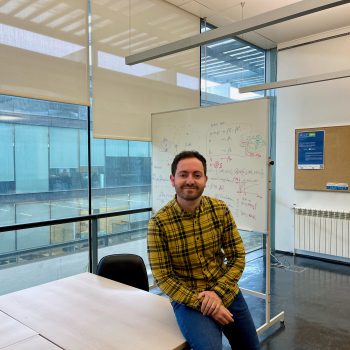
@GEOTECUJI ‘s study on Covid impact and public transport
During 2020, the fear of contagion reduced the use of public transport in the Tarragona metropolitan area by 47%, although 70% of regular passengers perceive it as safe compared to 30% of occasional passengers.
On February 9, 2022, the closing event of the COVMOVTUR project took place to present the main results of the study “COVID-19 and mobility in tourist territories: changes in guidelines and its effect on the physical and mental health of visitors and residents [COVID-19 y movilidades en territorios turísticos: cambios de pautas y su efecto sobre la salud física y mental de visitantes y residentes]“. In other words, the main objective was to study the impact of the pandemic on mobility in the Tarragona metropolitan area in the use of public transport among residents and visitors. COVMOVTUR was financed by the Supera Covid-19 Fund from Banco Santander and CRUE Spanish Universities. The project was led by the GRATEC group from the Universitat Rovira i Virgili (URV) in collaboration with Eurocat, GEOTEC from the Universitat Jaume I, and the Public Transport Authority [“Autoritat Territorial de la Mobilitat” – ATM] of Camp de Tarragona.
That the pandemic has drastically affected mobility is a fact that everyone knows. For Khalid Alhogail, president of the International Association of Public Transport, “the years 2020 and 2021 have been the worst for public transport in the last hundred years“. Not all countries suffered the same setback, Alhogail noted. Some countries reached out a reduction of 100%, while other areas suffered a lesser impact, although in most cases greater than 50%. In the area analysed in the COVMOVTUR project, the use of public transport dropped by 47% due to the impact of the pandemics. Next bar chart compares the total number of validations in 2019 (left) and 2020 (right), by month and type of smart card (fare). In total, about 10 million fewer validations were registered in 2020 than in the previous year.

Alhogail highlights the conclusions of the last COP held in Glasgow in 2021. “Transport is responsible for 26% of CO2 emissions worldwide”. Therefore, transport is part of the problem, but at the same time, it is also part of the solution in the fight against climate change. After the pandemic, the reduction in the use of public transport in favor of private transport has been a common trend in many areas. Also in the Tarragona area. Based on a survey of 2,791 people, fear of contagion is the main cause that explains the almost 50% reduction in the use of transport between 2019 (pre-pandemics) and 2020 (pandemics). However, this perception of fear is not the same between residents and tourists. The study also shows that 70% of regular passengers perceive it as safe compared to 30% of occasional passengers, that is, mostly tourists.
A team of researchers from GEOTEC and GRATET is studying the impact of COVID on passenger behaviour during the summer of 2019 and 2002, based on data from mobility validations, to find passenger profiles. Results will be published soon in the open access journal European Transport Research Review.
Some regional and local media outlets echoed the event:
“El miedo al contagio redujo un 47% el uso del transporte público en Tarragona”, https://www.lavanguardia.com/ocio/viajes/20220209/8044590/miedo-contagio-redujo-47-transporte-publico-tarragona.html, La Vanguardia, 9 Febrero 2022.
“Un estudi apunta que el transport públic és percebut com el lloc on hi ha més risc de contagi de covid-19”, https://www.lavanguardia.com/local/tarragona/20220209/8045268/estudi-apunta-transport-public-es-percebut-com-lloc-on-hi-mes-risc-contagi-covid-19.html, La Vanguardia, 9 Febrero 2022.
“Els usuaris habituals del transport públic tenen menys sensació de risc de contagi que els esporàdics”, https://www.reusdigital.cat/noticia/90790/usuaris-habituals-transport-public-tenen-menys-sensacio-de-risc-de-contagi-que-els-esporadics, reusdigital.cat, 12 feb 2022.
- Posted by geoadmin
- On 13 March, 2022
- 0 Comments




0 Comments